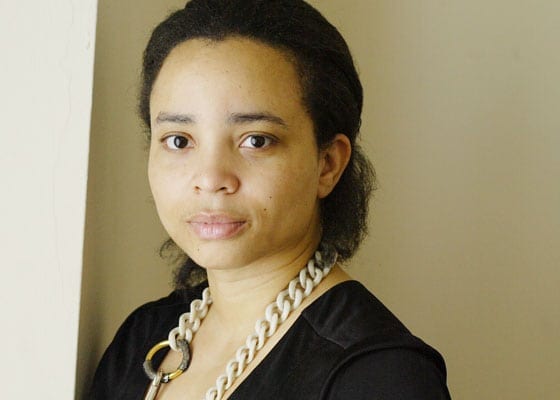

Author: Sana ButlerButler, a special correspondent for Newsweek International, said she wrote “Sugar of the Crop” because she was “tired of the race division” in the U.S.
Many books and films over the last 150 years have explored the social impact that slavery has had on race relations in America. In “Sugar of the Crop: My Journey to Find the Children of Slaves,” author Sana Butler makes an important contribution to the topic by looking at how the lives of the last surviving children born to slaves evolved after the abolition of slavery.
The recently released book chronicles Butler’s 10-year journey to conduct interviews with these survivors and record their stories. Most were in their 90s at the time of their interviews. All have since passed away.
“I started my research during the time [when] some in the African American community wanted President Clinton to apologize for slavery and [the issue of] reparations came up,” said Butler, a special correspondent for Newsweek International. “I was just tired of the race division and wanted to do a book that would not only connect all Americans regardless of race, but also show that slavery is not that far removed from us today.”
Butler spent the formative years of the project calling state Department of Aging centers around the South, as well as black churches and nursing homes, trying to find the children of former slaves. All told, she conducted hundreds of interviews, even as many of the children were dying.
Not since the Federal Writers’ Project of the Work Progress Administration gathered more than 2,000 first-person slave narratives during the 1930s had such a project been undertaken. Butler’s book is believed to be the first — and, given that the interview subjects are all now deceased, likely only — book about the children of slaves based on primary interviews.
Through the interviews, Butler tells the inspiring true story of a generation that overcame massive obstacles in order to live better lives than their ancestors.
Crispus Attucks Wright, aged 87 at the time of his interview, offers one example. A Beverly Hills, Calif., lawyer and self-made millionaire, Wright’s father was born on a Louisiana plantation, and believed that America would be fair to “the studious and determined” of all races.
“I loved Crispus Wright because he treated me like one of his own grandchildren,” Butler said. “For me, it wasn’t just about the interviews. It was being around these people and being enveloped in their personal stories.”
One commonality that Butler found among all her interviewees was that they were taught by their parents the value of self-determination, or what Butler would call an “immigrant mentality.” When the Civil War ended in 1865, many former slaves took advantage of their new freedom by voting and running for political office — attributes that they passed on to their descendants.
“The people I interviewed also understood the importance of an education and being able to own land,” Butler said. “There was this idea that there was potential for black people.”
The interviews also dispelled for Butler the popular notion that some of the major problems that African Americans face today, such as socioeconomic disadvantages and the breakdown of the black family, are the result of slavery’s legacy.
Not true, she says.
As a matter of fact, according to Butler, 80 percent of the children of slaves came from two-parent homes. In her book, Butler recounts the story of a group of brothers who were auctioned off to slave owners in different states, then reunited after slavery ended.
For her part, Butler said she doesn’t know what exactly has caused decay in the structure of many black families. But she did note that while historians have spent a great deal of time detailing the horrors of slavery and discussing post-traumatic slave syndrome, there is very limited documentation of the strength of former slaves and the determination of families to make progress.
“Former slaves raised their children differently,” she said. “Somewhere along the line, we lost it.”
Butler was also amazed to find that friendships developed between the children of former slaves and slave owners. During her research, she encountered many white slave owners’ descendants wondering aloud if they “came out OK,” given their lineage.
“Our perceptions of black and white during slavery [were] just so complex,” Butler continued. “As an African American, I also felt good [learning] that black folks weren’t the only ones [wondering] if they ‘came out OK’ after slavery.”
As for research on her own family tree, Butler said information about her ancestors in North Carolina during the period immediately following abolition is very limited. One link in the chain was forever lost while Butler was conducting interviews around the country, when her father was diagnosed with a rare form of cancer and died.
Following his death, Butler said, documenting these other lives became even more important to her, namely because she never talked to her own father when he was alive about their heritage. She said that is one of the biggest regrets in her life.
“My father died knowing about our family’s history,” she said. “If you don’t learn your family’s history when your parents are alive, then it will die with them.”






